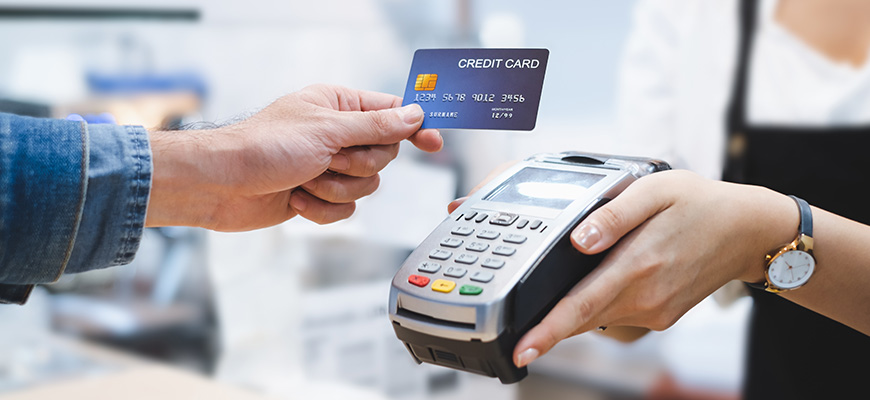Prepaid cards (sometimes also called prepaid debit or credit cards) have risen in popularity over the last few years and Canadian consumers can take advantage of an increasingly wide array of prepaid cards with great perks. The bad news is that, unlike traditional credit cards, prepaid cards don’t help you build your credit score or credit history. Read on to learn more about how prepaid cards work and why they are different from credit and debit cards.
What Is a Prepaid Card and How Does It Work?Prepaid cards are payment cards that you load your own money onto so that you can make online and in-person purchases. You can usually load money onto the card online, by using an app, or by going into a bank. You can use a prepaid card the same way you use a debit or credit card when you shop. Once you use up all the money on the card, you just need to load more funds onto the card to keep using it. The amount of money you load onto the card then essentially acts like a credit limit because you can’t spend beyond that amount.
Be aware that reloadable prepaid cards are different from prepaid gift cards —sometimes called non-reloadable prepaid cards — because they usually stop working once you’ve used up all the funds and you can’t load them with more money.
Prepaid cards are similar to credit and debit cards because they offer convenience and because they are often affiliated with a Canadian financial institution or a payment network processor like Visa or Mastercard. You can use them to shop for items online or in stores and even withdraw money from an ATM. Many prepaid cards that are affiliated with financial institutions and those that are registered with MasterCard or Visa even come with zero liability protection so you’re not responsible for fraudulent purchases if you lose your card.
Prepaid cards are easy to get because you don’t need to apply and have a good credit score to get approved. In fact, most prepaid card providers don’t even check your credit score, which makes it a smart option for those who would not normally get approved for a regular credit card because of a shaky credit history. The downside of not needing a credit check to get a prepaid card is that a prepaid card does not help you build up your credit score or credit history.
It’s important to note that a lot of confusion can arise with prepaid cards because they are often referred to as prepaid credit cards or prepaid debit cards. Because prepaid cards are pre-loaded with your own money (and thus you are not borrowing money from a financial institution as with a credit card) and money is not immediately withdrawn from your bank account each time you buy something (as with a debit card), prepaid cards are very different from credit or debit cards.
Not sure what your credit score?
Sign up for Borrowell to check your credit score for free. Find out and monitor your credit score to help improve it over time. No credit card required.
Check Your Credit Score
There are numerous differences between how prepaid cards work and how secured credit cards work. With a prepaid card, you load your own money onto the card. Because you’re using your own money, there is no credit check required to get one.
With secured credit cards, you only use your own money to provide a deposit to the financial institution that issues you the card. Your deposit acts like collateral and guarantees the credit card provider that you will repay your balance. It also acts as your credit limit. So, if you deposit $500, you will only be able to spend $500. However, unlike with a prepaid card, the cost of the purchases you charge to the secured card is not instantly taken out of your deposit. With secured credit cards, you are still required to pay off your balance each month. Only when you fail to make one or more balance payments will the credit card provider use your deposit for payment.
Additionally, with secured credit cards, the financial institution usually does a credit check. However, it’s usually much easier to get approved for a secured credit card than a regular credit card, even if you have a history of bad credit. This is because you’ve “secured” payment of the card with your deposit and therefore there is no risk of non-payment for the credit card company.
Another important difference between prepaid and secured credit cards is that a secured credit card can help you build your credit score. Financial institutions report your payments on a secured credit card to Canada’s credit bureaus, and having your payments reported is the only way to build your credit score and credit history.
Do Prepaid Cards Show Up on Credit Report?When you use a prepaid card to make purchases, you are using your own money and therefore your spending can’t exceed what you are able to pay. With a prepaid card, because it’s your own money and there’s no financial institute that’s really overseeing how you use it, your payments don’t get reported to a credit bureau so they won’t show up on a credit report. This is very different from spending with a regular credit card where you are actually temporarily borrowing money from the credit card provider to make purchases. When you pay off the credit card balance, you are paying off the “loan.” Credit card companies report your payments to one of Canada’s credit bureaus. Because a credit card acts like a loan, how you handle your credit card payments speaks to your creditworthiness and helps you build a credit history and credit score.
Is It Safe to Use a Prepaid Card?Prepaid cards that are issued by banks or by Visa or Mastercard are generally as secure as using a credit card because, like credit cards, they feature zero liability protection. That means that if your card is lost or stolen, you will not be responsible for any charges and will be reimbursed for unauthorized transactions. It’s important to note that this is not the case with non-reloadable gift cards (also known as anonymous or unregistered prepaid cards) which are usually not registered with a bank and are untraceable.
When Should You Consider Using a Prepaid Card?If you’re not too concerned with building up a credit score, there are a variety of scenarios in which using a prepaid credit card can be useful.
You are unable to open a bank account
You need to have a bank account to use a debit card and often even to use a credit card. A bank account, however, is not required with some prepaid cards, such as prepaid gift cards and also some prepaid cards you can buy from Canada Post. In general, however, to be protected by a card’s zero liability policy you may need to register the card with a financial institution.
You need a cash alternative
Prepaid cards can be a great substitute for cash because they are much more convenient since you can use them for online purchases. Prepaid cards that are registered with a financial institution are also much safer than cash because if you lose cash, you’re out of luck. Whereas if you lose a prepaid card or it’s stolen, you won’t be on the hook for any unauthorized purchases.
You are ineligible for a standard credit card
If you’re not able to get a regular credit card because you have bad credit or don’t have any credit history, a prepaid card can be the perfect solution because it has many of the benefits of a credit card like theft protection and you can make online purchases.
You want to give your child an allowance
Cash can be fairly easy for a child to lose. A prepaid card is safer than cash for those who aren’t eligible for credit cards. A prepaid card may be a good option to give your kid that lets them spend while giving you the option to track their spending habits.
You need to keep within budget
If you have a habit of overspending, a prepaid card can force you to stick to a budget. By using a prepaid debit card, you only have a certain amount of discretionary spending available to you each month. When the money runs out, you have a clear signal to stop spending and revisit your financial habits.
What Are Other Options to Help You Build Credit History?
Here are some other alternatives to a prepaid card if you’re looking to build up a credit score and credit history:
Credit Builder Loan: Credit builder loans are not very common in Canada, but they are sometimes offered by alternative financial institutions or credit unions. Instead of getting a loan, the lender puts money aside for you into a secured bank account. Even though you can’t use the money you still make payments on the loan and your payments are reported to a credit bureau, which can help you increase your credit score and history. When the “loan” period ends, you can access the money.
Secured Credit Card: as noted above, a secured credit card is one of the best ways to build a credit history.
Store Credit Cards: A store credit card can increase your credit score and help build a credit history because, like bank credit cards, your payments are reported to a credit bureau.
Personal Loan: Any personal loan payments you make will be reported to TransUnion or Equifax so as long as you make regular payments, a personal loan can help your score and credit history.








